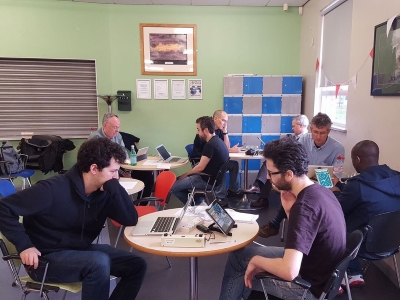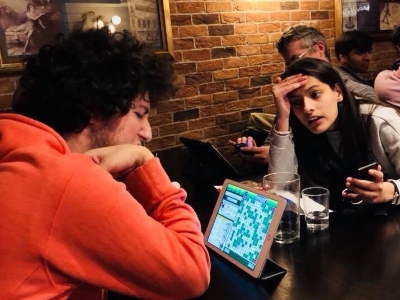Now, it would be easy to just casually dismiss this as gimmicky and not give it due deference - but dismissal is unfair and, in many ways, unjust.
Can innovation, as it has done time and again, be the key to continual growth in all aspects of the competitive version of the game? After all, such innovations as I mentioned above, certainly did lead to a growth and evolution that was for the betterment of the game.
The numbers don’t lie on this: usage of online versions of Scrabble and its many clones is in the millions. “Bridging the gap” as Austin puts it, even as little as 1% would add thousands to the game, especially in the traditional areas which are now experiencing a fall in numbers.
And, as the rules of the game don’t change - though there would need to be tweaks to rules of tournament play in this sort of format - it is merely an extension of what we currently play.
To look to grow the “traditional” tournament scene, you need something vibrant to add to it, almost to compete with it; for competition brings innovation and with innovation comes growth.
The thing currently missing for innovations like Tablet Scrabble is official recognition. It is time for WESPA to explore an international rules and rating system so that players around the world can be a part of the Tablet Scrabble revolution, pioneered with great devotion by Austin and David. You can also make the argument that the same applies to Speed Scrabble, a phenomenon that has been around for years and enjoys the occasional tournament around the world.
How that looks is not the purpose of this article but to inspire the way we can actually
make this happen.
Tournament Scrabble as we know it, can only grow as a result of this sort of discussion - and there are many elements that the traditional scene has that are advantageous over Tablet play and vice versa.
All versions can grow and benefit each other: the time to discuss has started, and our outcomes will help shape the game to its betterment if we incorporate the new into official tournament scenes.
You can learn more about Tablet Scrabble in the
Facebook Group Scrabble International.
Nick Ivanovski is Chair of Promotions in WESPA and a member of the WESPA Committee. The opinions expressed in this article are personal and not presented in any official capacity.


 Evolution in Scrabble
Evolution in Scrabble 


